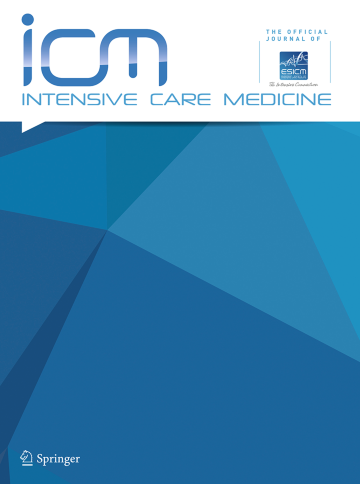Life-threatening immune-related adverse events in the intensive care unit: a narrative review.
IF 21.2
1区 医学
Q1 CRITICAL CARE MEDICINE
引用次数: 0
Abstract
BACKGROUND Immune checkpoint inhibitors (ICIs) have revolutionized cancer treatment by significantly improving survival across various malignancies. However, they are associated with immune-related adverse events (irAEs), resulting from excessive immune activation. Some irAEs can be life-threatening and require intensive care unit (ICU) management. These toxicities involve cardiovascular, pulmonary, hepatic, gastrointestinal, neurologic, endocrine, and hematologic systems and often occur early in the ICI course. As ICI become increasingly integrated into earlier phases of cancer care, intensivists must be prepared to manage irAEs. DESIGN Narrative review objectives: To summarize the evolving evidence on the epidemiology, diagnosis, and management of severe irAEs requiring intensive care by looking for the most relevant articles up to August 2025. The review emphasizes (1) the rationale and timing for immunosuppression beyond corticosteroids, (2) the integration of hemodynamic and organ support strategies, and (3) the importance of multidisciplinary coordination between oncology and critical care teams. RESULTS Early recognition, structured diagnostic evaluation, and multidisciplinary management are key to optimizing outcomes. Although overall mortality remains high-particularly in myocarditis and multisystem involvement-timely diagnosis and individualized immunosuppressive therapy can improve survival. Rechallenge with ICIs may be cautiously considered in selected patients after full clinical recovery and comprehensive risk assessment. This review aims to support intensivists facing this emerging clinical scenario by synthesizing current evidence and practical strategies for balancing immune modulation with oncologic efficacy in the ICU setting.重症监护病房中危及生命的免疫相关不良事件:叙述性回顾
免疫检查点抑制剂(ICIs)通过显著提高各种恶性肿瘤的生存率,彻底改变了癌症治疗。然而,它们与过度免疫激活引起的免疫相关不良事件(irAEs)有关。一些急性呼吸道感染可能危及生命,需要重症监护病房(ICU)管理。这些毒性涉及心血管、肺、肝、胃肠道、神经系统、内分泌和血液系统,通常发生在ICI病程的早期。随着ICI越来越多地融入癌症治疗的早期阶段,强化医生必须做好管理irae的准备。设计叙述性回顾目标:通过查找截至2025年8月的最相关文章,总结需要重症监护的严重irAEs的流行病学、诊断和管理方面不断发展的证据。该综述强调(1)除皮质类固醇外免疫抑制的原理和时机,(2)血液动力学和器官支持策略的整合,以及(3)肿瘤学和重症监护团队之间多学科协调的重要性。结果早期识别、结构化诊断评估和多学科管理是优化预后的关键。尽管总体死亡率仍然很高,特别是心肌炎和多系统受累,但及时诊断和个体化免疫抑制治疗可以提高生存率。在临床完全恢复并进行全面风险评估后,可谨慎考虑对某些患者再次使用ICIs。本综述旨在通过综合当前的证据和实用策略来平衡ICU环境下的免疫调节与肿瘤疗效,支持重症医师面对这一新兴的临床场景。
本文章由计算机程序翻译,如有差异,请以英文原文为准。
求助全文
约1分钟内获得全文
求助全文
来源期刊

Intensive Care Medicine
医学-危重病医学
CiteScore
51.50
自引率
2.80%
发文量
326
审稿时长
1 months
期刊介绍:
Intensive Care Medicine is the premier publication platform fostering the communication and exchange of cutting-edge research and ideas within the field of intensive care medicine on a comprehensive scale. Catering to professionals involved in intensive medical care, including intensivists, medical specialists, nurses, and other healthcare professionals, ICM stands as the official journal of The European Society of Intensive Care Medicine. ICM is dedicated to advancing the understanding and practice of intensive care medicine among professionals in Europe and beyond. The journal provides a robust platform for disseminating current research findings and innovative ideas in intensive care medicine. Content published in Intensive Care Medicine encompasses a wide range, including review articles, original research papers, letters, reviews, debates, and more.
 求助内容:
求助内容: 应助结果提醒方式:
应助结果提醒方式:


